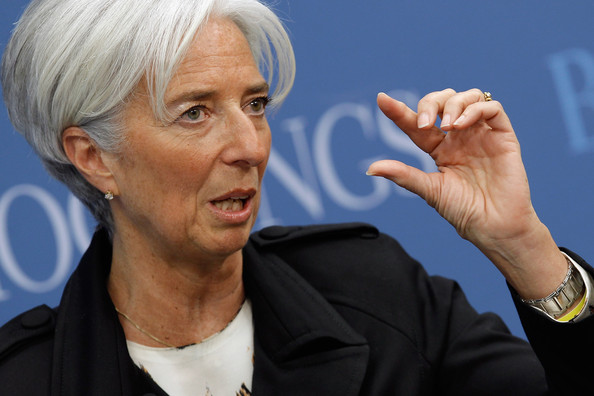Global leaders must be cautious, even when there are disagreements, so as to avoid harming trade and investments which have been key drivers of the global economic recovery, says Christine Lagarde, Managing Director, The International Monetary Fund (IMF).
Amid concerns that escalating trade tensions between the United States and China could reverberate through the world economy, the IMF boss urged the sides to resolve their disputes through dialogue.
“Investment and trade are two key engines that are finally picking up. We don’t want to damage that,” she said at a press briefing to open the spring meetings of the International Monetary Fund and World Bank.
Ms. Lagarde said finance officials from member governments this week during the Washington meetings would discuss the trade disputes that she said threatened to hurt economies that are interconnected by global supply chains.
While she acknowledged “the actual impact of growth is not very substantial when you measure in terms of GDP,” she said the dispute could erode business confidence very quickly because of the uncertainty, which would make businesses “reluctant to invest.”
In its World Economic Outlook this week, the IMF listed the trade tensions as a key downside risk to the global recovery and warned that it could harm the poorest the most through rising prices.
US President Donald Trump last month imposed steep tariffs on steel and aluminum imports and threatened to impose more on tens of billions of dollars in Chinese imports, prompting Beijing to slap duties on US goods like pork and sorghum and threaten even more sensitive US exports like soy beans.
International cooperation “has served us so well and delivered more progress for more people than at any time in history,” but is now being questioned, Ms. Lagarde said.
While she welcomed bilateral discussions between Washington and Beijing, she said disagreements should be resolved in a multilateral forum, and every country should address its own trade barriers.
The Bretton-Woods boss again urged countries to “steer clear of all protectionism,” saying that “unilateral trade restrictions have not proven helpful.”
Instead, “countries should work together to resolve disagreements without using exceptional measures.”
Even with the implied critique of Trump’s tactics, Ms. Lagarde praised the massive US corporate tax reform which the fund “advocated, recommended, encouraged, and is very pleased to see happening.”
She said lowering the tax rate to match the average of other major economies would encourage investment.
But at the same time, she said the US should take advantage of good economic times to work to reduce its debt and deficit, rather than increase it.
Debt levels worldwide have hit a record $164 trillion, two-thirds of which is held by the private sector, while public debt in advanced economies is higher than at any time since World War II, according to the IMF.
Ms. Lagarde cautioned that these circumstances could create “unsustainable debt burdens” for developing countries should financing conditions shift.













